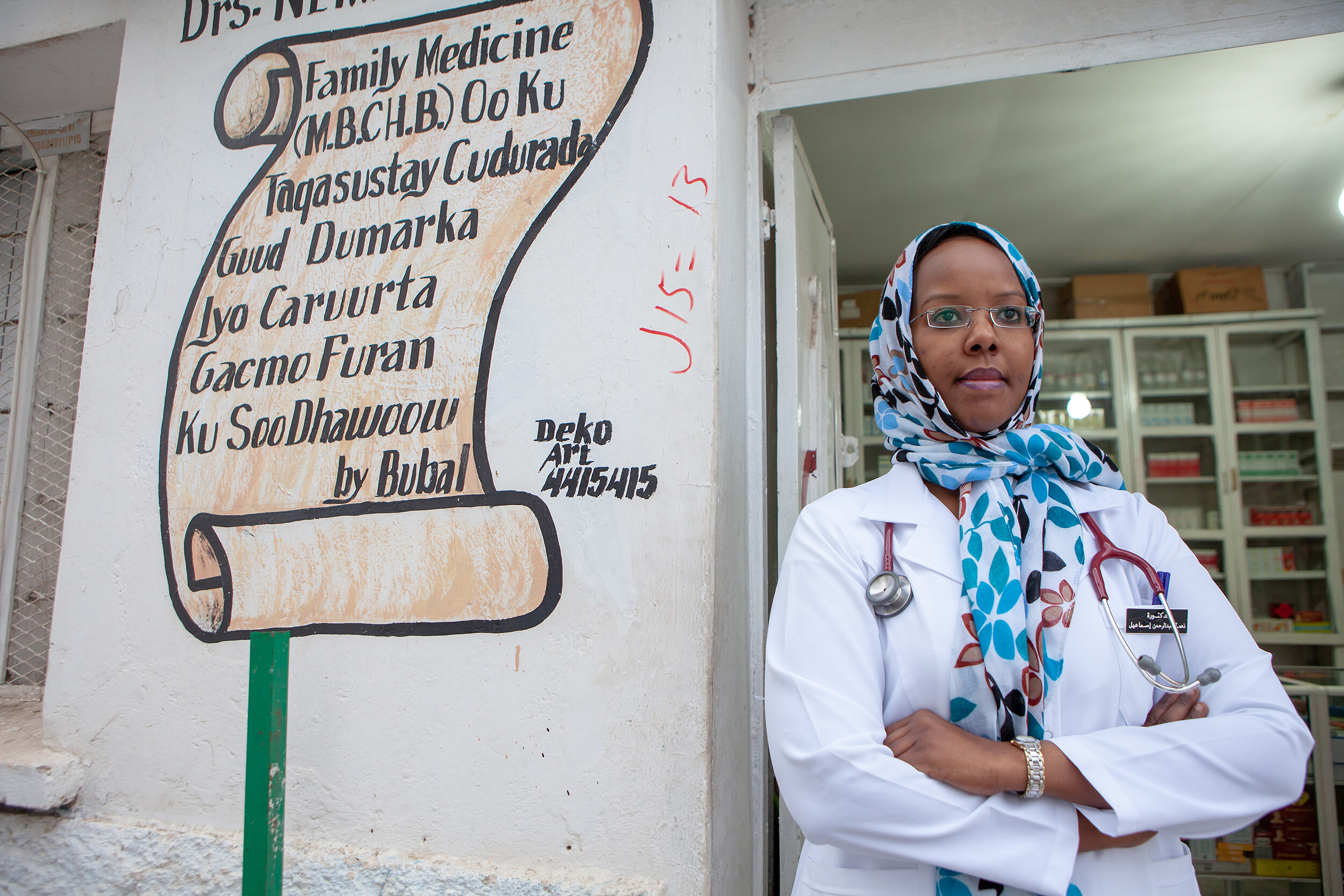
Women of Somaliland
Traditionally the role of women in Somaliland was one of reproduction and care provision. However, as a result of the catastrophic consequences of civil war, their role began to change, and many women were forced to become the breadwinners of their families. Following Somaliland’s secession from Somalia in 1991, women played a key role in brokering peace across the communities divided by traditional tribal allegiances through promoting dialogue, resulting in the formation of the constitution in 2001.
Since the 1990’s women have sought to promote gender equality and improve their social and economic situation. Somaliland has one of the highest maternal and infant mortality rates in the world and until recently, education and professional life were considered to be the realm of boys and men only. Many girls were forced to cease education after primary school in order to work in the household and to marry young. Women continue to make their voice heard and encouragingly traditional attitudes are gradually changing. Girls are now pursuing their education to a university level and are taking up a wide range of employment.
The photographs of the women included in this gallery are part of a a body of work put together during several trips to Somaliland in 2005, firstly with UNICEF, and then independently in 2011. With the help of Khadra Khalil of SOCSA (Somaliland Culture and Sports Association), Fouzia Musse, with the Ministry of Public Works and Housing, and the kind participation of the women photographed, our aim with this work was to promote female empowerment in Somaliland and to demonstrate the possibilities that a further education can provide. The images portray girls and women in both professional and traditional roles at all levels of society. I also hoped to offer a glimpse of daily life in a part of the world that is so often misunderstood and characterised by only poverty and violence.

Woman walking at the archaeological site of Laas Geel; the site’s caves have rock paintings that are over 5000 years old. 2011

Two women walking on Hargeisa bridge. Hargeisa, home to approximately two million people, is the capital city of Somaliland, an unrecognized self-declared sovereign state.

Nimco Mohamed Heybe in her clothes stall in Hargeisa city centre market. Somali women generally wear headscarves called “hijab” and brightly coloured, long dresses called “direh”.

Amina Sheikh Mohamed Jirde, First Lady of Somaliland and advocate of women's rights, in the residential quarters of the Presidential Palace, Hargeisa. 2011.

Sainab Mohamed Abdi, a presenter at Radio Hargeisa. 2011.

Zamzam Abdi Aden, Minister for Education, at work in her office. There are two female Ministers and one female Deputy Minister in the Somaliland cabinet. 2011.


Female Police Officer in Hargeisa Police Headquarters. In 2003, thirty women were trained as police officers by UNDP and the numbers of recruits continues to increase. Despite the urgent need for women in the law and order agencies, society remains sceptical of their role. 2011.

Two sisters attend to their family’s livestock in the village of Haji Magan, in the Gabiley region, one hour’s drive from Hargeisa. 2011

Edna Adan Ismail, former Minister of Foreign Affairs and of Social Affairs, and founder and director of the Edna Adan University Hospital. The hospital provides training to midwives and fights against the practice of Female Genital Mutilation. Somaliland has one of the highest infant and mortality rates in the world. 2011.


Student nurses training at the Edna Adan Hospital in Hargeisa. 2005.

A mother holds her newborn twins at the Hargeisa Group Hospital. 2011

The wedding of Abdirahin Hiabe Hassan and Kaltuun Adan Hashi at the Crown Hotel, Hargeisa. 2011.

Young girl sings during the enactment of a traditional Somaliland wedding ceremony on the outskirts of Hargeisa. 2011.

Sagal Ali and Mostafa Ibrahim Eid with their daughter Tasneem in the living room of their home, Hargeisa. 2011.

Baar Saed Farah, Member of Parliament, sits in a session at the House of Representatives; Baar is one of only two female MPs in Somaliland. 2011.


Dr. Naema Abdirahman Buba, pictured outside her clinic in Hargeisa. Naema, along with her sister Hebaq, a dentist, trained in Iraq and the UAE and both recently returned to their native country to set up their own clinic in Somaliland. 2011.




Girls playing basketball at SOCSA, the Somaliland Community Sports Association, Hargeisa. 2005.



Female staff at a UNICEF-funded maternity health clinic, Boroma. 2004

Fatima Ibrahim, head of the Office of Development and Humanitarian Affairs, a local NGO, and owner of Women's Paradise Beauty Salon.

The female staff of HALO Trust, a mine clearance NGO. (From left to right)Yasmin Ahmed Muse (Logistics Manager), Idil Suleiman Ahmed (Finance Officer), and Hinde Adem Abdilahi (Finance Assistance).

